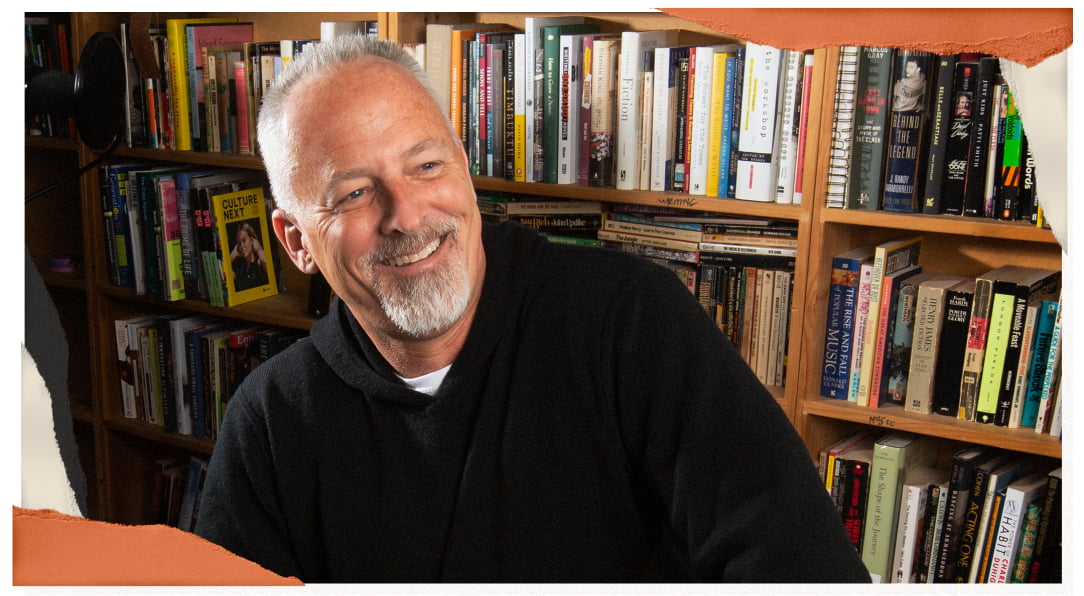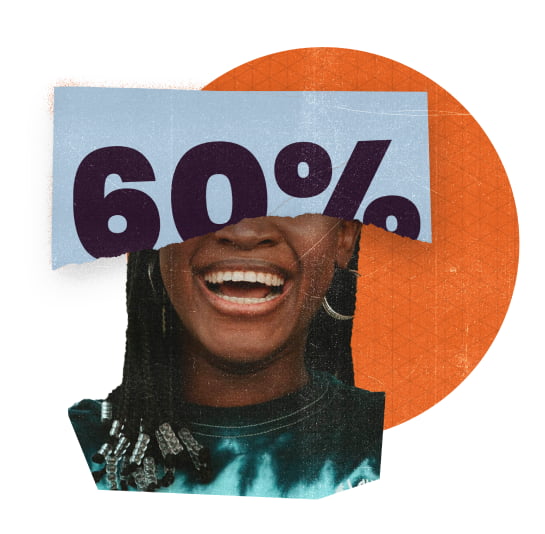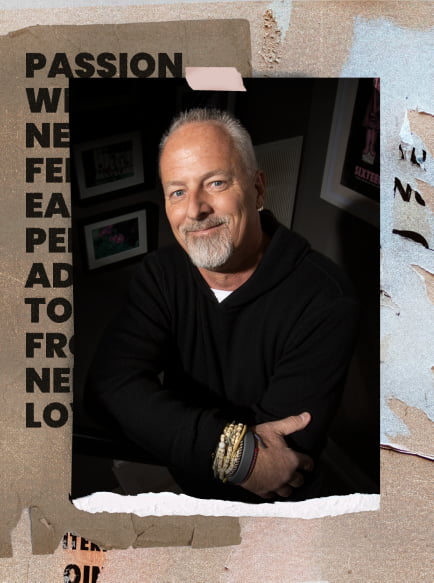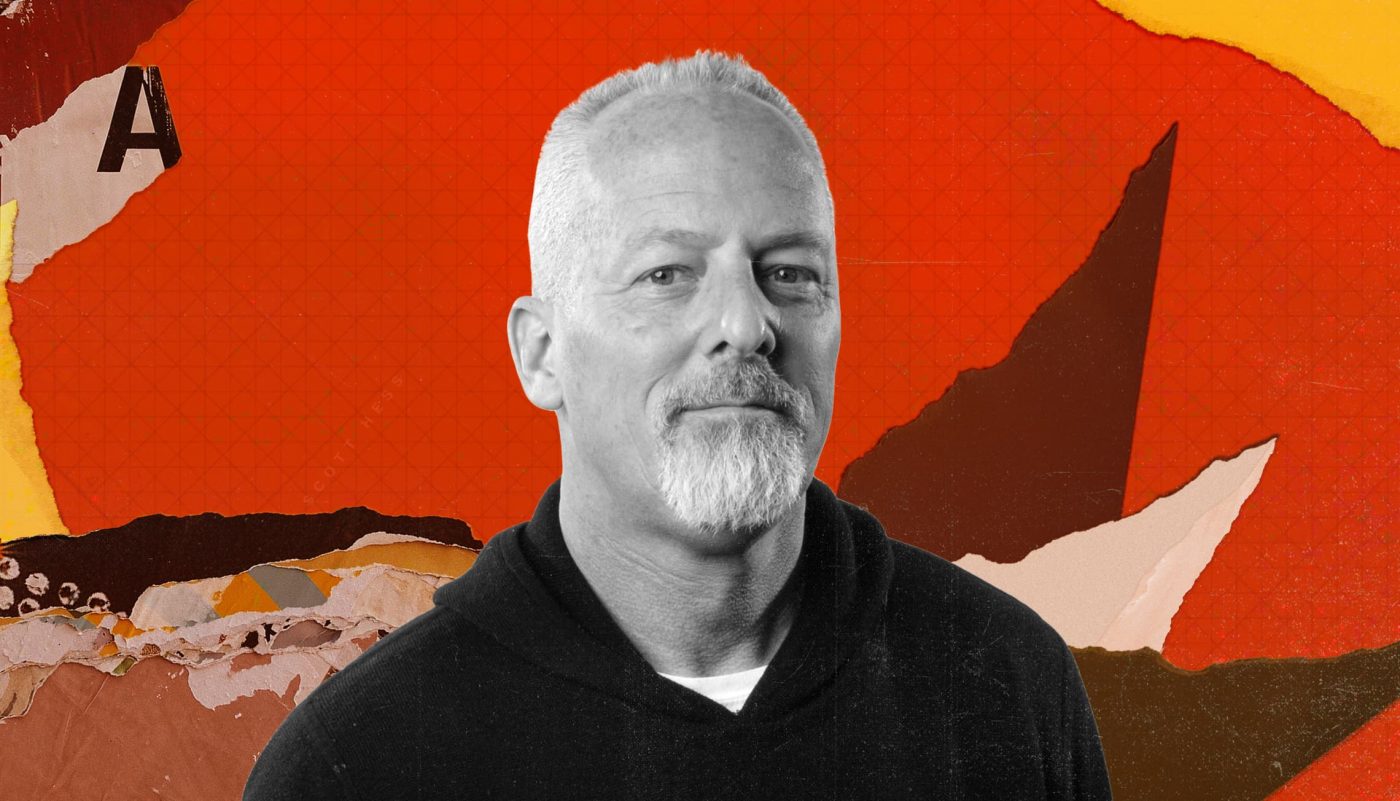It's true: marketing is always playing catch-up with consumer behavior. And with so many brands and agencies focused on how to grow, what to do with big data, and how to keep innovating (as they should be), many organizations are forgetting that consumer behavior is human behavior — and that humanity should be at the center of all of our planning.
As marketing and sales pros (in a pandemic/post-pandemic world), we’re at a pivotal point in digital advertising right now. The industry is bloated with technology that a lot of us don’t fully understand, as well as data we have no idea what to do with.
Not only is Scott Hess CMO at Spark Foundry and EVP of Communications and Marketing at Publicis Media, but he is also a poet and guitarist — who believes we’ve been focusing on the wrong thing. As an industry, we have to recalibrate our efforts to recognize the humanity in others and then build our client services, campaigns and recruiting efforts around that. Scott is not just spewing esoteric platitudes in this interview: he’s making sure that happens at Spark Foundry and Publicis Media, forcing the issue every day. And it’s working.
“Having a job or a separate work persona does not excuse you from the job of growing as a human...and extending that [humanity] to the millions of people that we’re trying to connect with and sell products to.”
EXIUS: Tell me a little bit about your relationship with Spark Foundry and Publicis Media?
HESS: When I got to Spark Foundry 10 years ago, there were 65 people — and I was responsible for leading the research group (a small team that needed to get bigger). My job was to come in and be an insightful part of the team, come up with compelling pitch content, and build out the capability. Now I spend about 50% of my time as the Chief Marketing Officer of Spark Foundry and about 50% working to create a meaningful, cohesive culture for Publicis Media (agencies and entities that include Starcom, Zenith, Spark Foundry, PMX, CJ Affiliate, etc.). All the entities I’m responsible for include about 23,500 people, and as we speak today, I'm mildly apprehensive...nervous to fulfill that responsibility for that many people. But I learned long ago that when I get too scared, I just have to remember that I don’t have to do it alone. I am lucky enough to be surrounded by really smart people. I'm really good at distilling a whole bunch of information — data and sentiment, qualitative, quantitative — into something clear and simple that other people can pick up and share. And that's what I'm doing right now. I'm super excited about this new role, but I'm definitely a bit daunted by it as well.

EXIUS: How do you think the expectations of your role compare to that of other CMOs?
HESS: The first thing that comes to mind is that if I think about our clients — Taco Bell, Starbucks, Southwest Airlines, my friend who’s the Global CMO of McDonald’s — those jobs are brutal. Those jobs are very tightly tied to growth; quarter to quarter, year-over-year – all the different ways that we measure growth, and they’re commanding million-dollar marketing budgets. With our help, they have to prove their effectiveness. That is insanely pressure-filled. As the B2B CMO of an agency, I am focused on creating an idea in the minds of our clients, prospective clients, employees, and prospective employees — without a giant global advertising budget. I think it's profoundly important that the CMO of a B2B agency like ours be the human embodiment of the spirit and role of the brand, and serve as a constant advocate and conduit for every other person at the agency. When people ask me what my job is, I always say that I stick my nose into everything — from finding out about the toilet that doesn't work on the 23rd floor and making sure it gets fixed to advocating for a faster cycle of raises and promotions to helping win new business.
“I think it's profoundly important that the CMO of a B2B agency like ours be a human embodiment of the spirit and role of the brand. The CMO has to always serve as a constant advocate and conduit for every other person at the agency.”
EXIUS: A big part of POV is to help marketers better understand how to find and reach their audiences. How do you think we can better understand or connect with consumer attitudes, beliefs, and behaviors in the industry?
HESS: That’s a really big question, so I'm going to try a few different angles on it, but the first thing I want to say is that in an era of rapidly advancing technology, processing innovation, data transparency, all that stuff is amazing! But the most important thing is your starting point — and that’s loving your audience and the willingness to walk in the shoes of the people you're trying to connect with. For me, I'm trying to connect with current and prospective employees, current and prospective clients, and then helping our clients connect with their consumers. I think the common ground across all my audiences is that I'm trying to help forge connections with them. You have to walk in their shoes a little bit so you know what it’s like to be them.  My background was in youth research before I started doing this, and what was interesting was I would go to some of these companies like Coke, Pepsi, Nike, and Adidas, and one of the biggest thrills that I could give them was a real live open window into their target consumer. It's one thing to have quantitative data that tells you 30% this or that, or last year 60% did this or that, but holy shit, it’s a whole other thing to actually sit down with those people and get inside of the numbers and come to understand what that represents. Over time, the ad business has turned from something new and cool into the troll under the bridge — something that pops up, unexpected and unwelcome. But an ad doesn't have to feel like an intrusion. It can feel like a friend. It can feel like a really wise person that you want to hear from. It can feel like a sort of serendipitous moment of entertainment that brings a smile to your face. I would go so far as to say that you have to find a way to love them [your audience]. If you go in with the attitude that “I’m going to bamboozle or disrupt people, consumers, employees or whatever into doing the thing I want them to, and all I need is clever creative to do it,” then your success, if any, will be short-lived. If your attitude is “I really, really love the people that come into our stores or our offices, and I want to make their lives better,” that is success, and it feels a thousand times better.
My background was in youth research before I started doing this, and what was interesting was I would go to some of these companies like Coke, Pepsi, Nike, and Adidas, and one of the biggest thrills that I could give them was a real live open window into their target consumer. It's one thing to have quantitative data that tells you 30% this or that, or last year 60% did this or that, but holy shit, it’s a whole other thing to actually sit down with those people and get inside of the numbers and come to understand what that represents. Over time, the ad business has turned from something new and cool into the troll under the bridge — something that pops up, unexpected and unwelcome. But an ad doesn't have to feel like an intrusion. It can feel like a friend. It can feel like a really wise person that you want to hear from. It can feel like a sort of serendipitous moment of entertainment that brings a smile to your face. I would go so far as to say that you have to find a way to love them [your audience]. If you go in with the attitude that “I’m going to bamboozle or disrupt people, consumers, employees or whatever into doing the thing I want them to, and all I need is clever creative to do it,” then your success, if any, will be short-lived. If your attitude is “I really, really love the people that come into our stores or our offices, and I want to make their lives better,” that is success, and it feels a thousand times better.

“An ad doesn't have to feel like an intrusion. It can feel like a friend. It can feel like a really wise person that you want to hear from. It can feel like a sort of serendipitous moment of entertainment that brings a smile to your face.”
EXIUS: How do you think the role of agencies is changing? Or even, how does their role need to change?
HESS: For the longest time, media agencies like ours looked at themselves as being responsible for planning and buying media, and that was it. We were like “Hey you, client, you go over there and get your products together. We’ll pull a strategy together, and when it's time to plan/buy media, that's when we kick into gear.” And then when we’d get done with our stuff, get it over to our partners to make it happen. This is not unique to us; the entire industry used to have a very siloed approach to how they did business. And I think, increasingly, we need to have a different mindset where the agency cares as deeply about the client business as anybody that works there. Their challenges are our challenges. I’ll give you an example. REI came to us with a brief that was basically, “Man, we sell a ton of stuff during peak sales periods (Memorial Day, Black Friday), and it’s really hard to compete with big outdoor retailers at those peak sales times. How can we take this much spend and shout louder?” One of the things that we said to them was “You're not a big box retailer: you are a co-op that was born out of a passion for the outdoors. And we think the question is actually ‘How do we become a category of one?’ Well, our research shows that your audience would really love to hear that if you wear a green apron at REI, it means that you're truly an expert on outdoor life. They would love to understand what values the company was founded on.”
 From that pitch meeting, in partnership with the PR and other partners, we developed the “Opt Outside” campaign. “Hey, customers, this Black Friday we're not going to try [to] get you to come in and buy a canoe for half price and then fight it out with everybody else. Instead, we’re going to close the store and close the website and ask you to go outside and do stuff.” That wasn’t in the original brief, but the result? They killed their fourth quarter, received more job applications than ever before and had higher employee engagement scores than ever before, so the responsibility of agencies is not just to project manage the client: it’s to dig deeper and care more deeply about the client business beyond the spreadsheets.
From that pitch meeting, in partnership with the PR and other partners, we developed the “Opt Outside” campaign. “Hey, customers, this Black Friday we're not going to try [to] get you to come in and buy a canoe for half price and then fight it out with everybody else. Instead, we’re going to close the store and close the website and ask you to go outside and do stuff.” That wasn’t in the original brief, but the result? They killed their fourth quarter, received more job applications than ever before and had higher employee engagement scores than ever before, so the responsibility of agencies is not just to project manage the client: it’s to dig deeper and care more deeply about the client business beyond the spreadsheets.
“We know that as media professionals, our media cannot be successful without representation.”
EXIUS: What does hiring look like for you now and/or post-pandemic?
HESS: Here’s the thing: look around at your best colleagues – the beloved leaders of the business, the people on your team that are superstars – then ask yourself: did they go to Harvard, Yale, Princeton, Michigan, Northwestern? Or did a ton of them go to Michigan State, Illinois State, three different City of Chicago community colleges and string something together — then build their own brand and business? If we need to hire SEO people, guess who's good at SEO? The people that have done it for their own enterprise. We hired a young woman who started a catering business and had to learn SEO to get her business up and running. She didn't have access to the tools that we have “inside the castle,” but her expertise on building her own business was stellar. We have incredibly talented, good-hearted, experienced HR and talent acquisition people, and I think they thought their job was to guard the castle –this mentality that it's a privilege to work here, the greatest advertising and media company in the world, so it was like a velvet rope bouncer-with-a-clipboard situation. There's a meme or something that said something like, you know, for 100 years, leaders have told employees that they're lucky to work there, and the shift that's happened in the last few years is that leaders have had to realize that they're lucky to have the labor of their employees. When my boss, who is the COO of Publicis Media, came to me and said, “We’ve won some big pieces of business, and we need a gazillion people,” I said we definitely have to drop this “castle” mentality. We’re never going to get the people we need at the rate we need it by perpetuating this “blue-chip” mentality of letting people in. If we have to hire a zillion people, we cannot have the attitude that you're lucky to be talking to me, and I'm only going to let in the people with the right shoes on or who know somebody. We need to be wooers and lower the drawbridge to the castle to let as many unbelievably talented people as possible in and let them talk to as many people inside the castle as possible. And p.s., if your little clipboard doesn’t allow you to see non-white, non-straight, non-binary, or Black and Latino folks, then you and I are going to have a conversation because you're blocking me from having eyes on all the possibilities. Let's say I'm the most empathetic, pro-diverse, straight white guy you’re ever going to meet. No matter how well-intentioned I am, my voice at the table is never going to come from the same kind of positions of advocacy. Screw optics. We know that as media professionals, our media cannot be successful without representation.
EXIUS: What does that shift look like at Publicis Media?
HESS: So what we’re trying to do differently with our current recruiting campaign (which is called “Back to Better”) is that we don't want to get back to normal in our lives or careers. We want to take the opportunity to be better than ever (especially in light of everyone’s pandemic reset; we’re resetting, too). I came up with three pillars that I could defend and that any of our people could stand up there and talk about because they knew that they weren't just double-talking or spinning. One: We accelerated the rate of raises and promotions so that when you're ready and you're good, you don't have to wait till the next cycle. It’s not like, “Well, Mr. Exius, you're doing the job of the person above you, and that job is open, but our promotion cycle isn't until next August, so we'd ask you to just rise up and do all that stuff you know...and be patient.” No. When your aptitude and expertise are there, it's time for you to move up. Period. Two: We took a really hard look at our attitude towards diversity, equity, and inclusion, beyond an Excel sheet. We started the Once and For All Coalition and asked a bunch of our clients and our partners to make a commitment to take a hard look at the way they were allocating their media investment and make sure that it was equitable. We had so many clients who had great opportunities with audiences of color: from Black-owned media companies to targeting black consumers where there was a terrific growth opportunity. It’s not just hiring a bunch of people, but how I’m spending the dollars. Three is context, which is the context of the communities in which we work. And I think of the communities as the advertising community itself, as well as the literal cities and markets that we have offices in. We are looking at diversity and inclusion holistically, ensuring that a significant amount of the pro bono stuff we do is aligned with those ideals, supporting hybrid work needs where we can, supporting life changes where we can. The power has shifted, and this is much bigger than the advertising business.
“I don’t want the industry to disrupt people’s lives: I want us to enrich their lives”
EXIUS: What would you like to see brands/advertisers achieve in the next year or so?
HESS: Oftentimes, people make the distinction in their minds between work and personal. I don’t believe those two are separate (and to be clear, I am absolutely aware that there are places where people must make that distinction for their own physical and psychological safety), but what I firmly believe is that having a job or a “work” persona does not excuse you from the job of growing as a human: being kind, being present, recognizing the humanity in others. And so, this is fairly lofty, but what I want for the industry-at-large to achieve in the next year is to recognize that work isn't separate from life and that the time we spend at work isn't something that we do in exchange to be able to actually enjoy ourselves at other times. What I want for us in the next year is to continue to recognize that people are human and the way we treat each other — and I'm not just saying our colleagues or our clients — applies to how we actually go out there in the market and “disrupt” people’s lives. I don’t want the industry to disrupt people’s lives: I want us to enrich their lives by extending that humane mindset to all the millions of invisible people that we’re trying to connect with and sell products to. I don't know how it would affect productivity or what it would do to profit, but that's what I want to see.
This article was based on a recorded POV conversation with Scott, then edited for this format.
Wenner Exius is responsible for leading both the marketing and creative teams at OpenX Technologies. He is a passionate storyteller, proven creative marketer, and a total geek for cello music and conscious rap. For more of the OpenX POV, contact buyerdev@openx.com.

